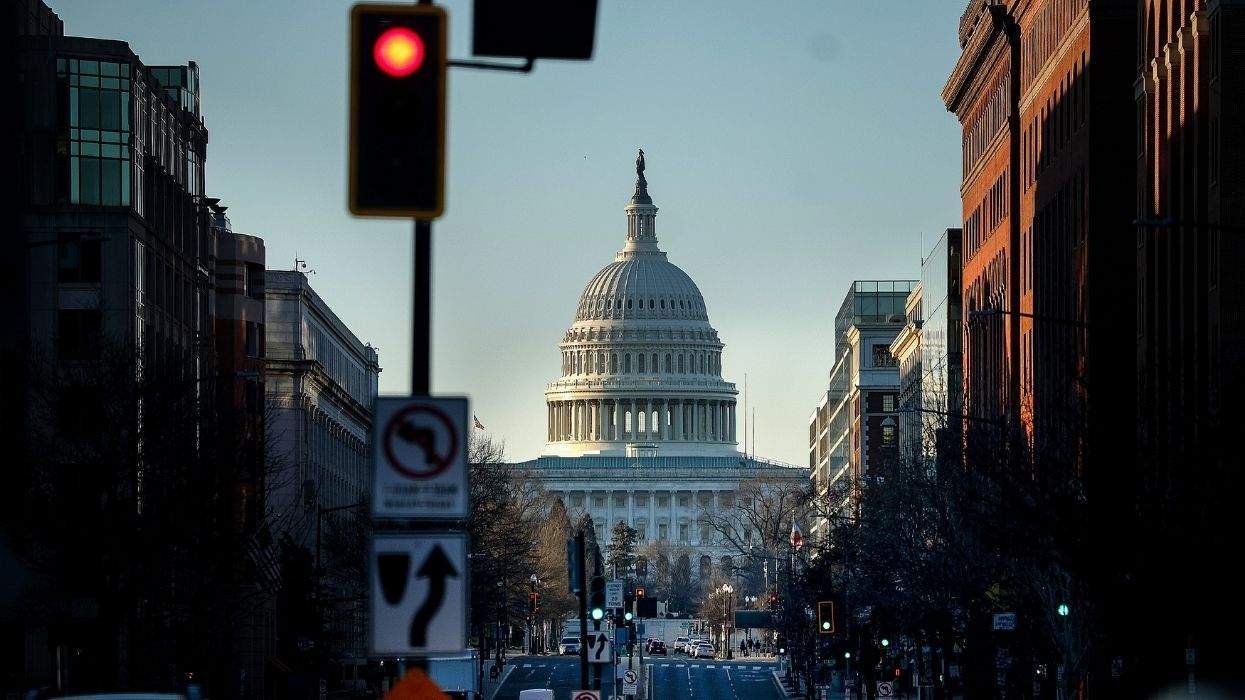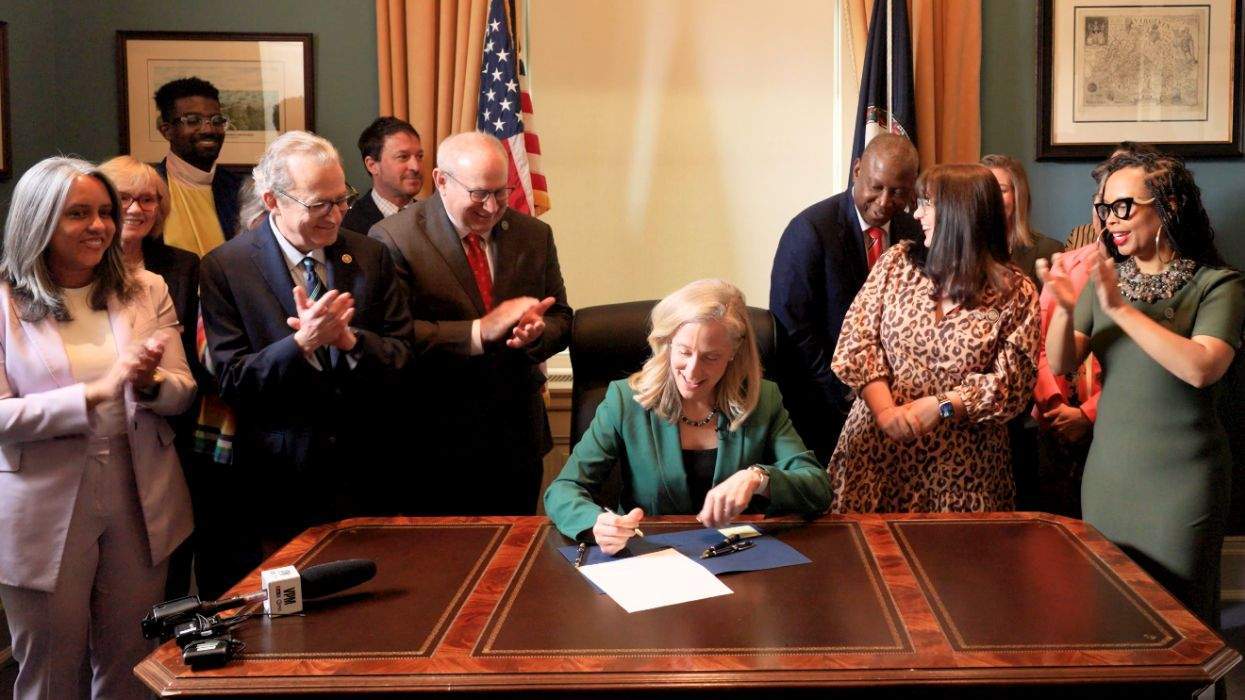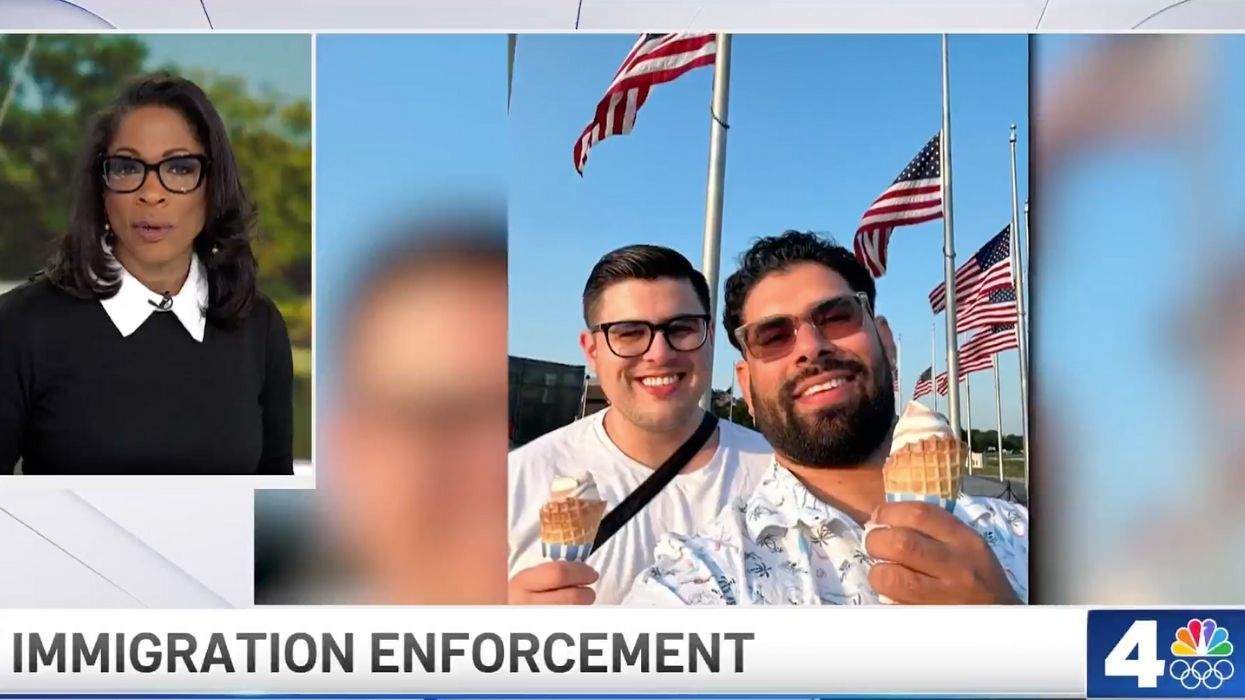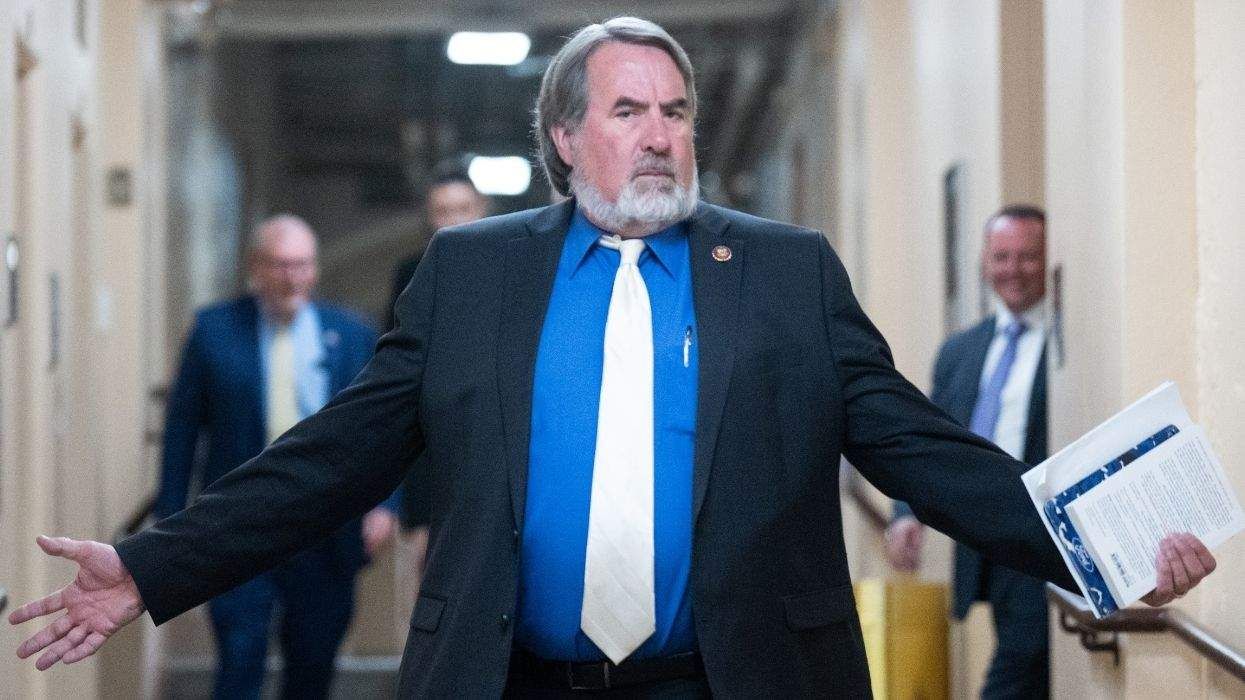Less than 50 years since the Stonewall riots and the foundation of the modern queer liberation movement, marriage equality was just affirmed all across the country. It's amazing.
We have Justice Anthony Kennedy to thank for four major cases that affirmed LGBT equality, from Romer to Lawrence to Windsor and now Obergefell. Four of his colleagues agreed with him that marriage is a fundamental right, and four dissented.
Here's a key component of Kennedy's ruling:
"The nature of injustice is that we may not always see it in our own times. The generations that wrote and ratified the Bill of Rights and the Fourteenth Amendment did not presume to know the extent of freedom in all of its dimensions, and so they entrusted to future generations a charter protecting the right of all persons to enjoy liberty as we learn its meaning."
He also wrote:
"An individual can invoke a right to constitutional protection when he or she is harmed, even if the broader public disagrees and even if the legislature refuses to act."
In other words, the Constitution's set up so that as we become a more enlightened society, we can improve our own laws to reflect that enlightenment. Kennedy also dismisses the idea that defernece to tradition should preserve marriage bans.
"If rights were defined by who exercised them in the past, then ... new groups could not invoke rights once denied."
And also:
"An ability, desire, or promise to procreate is not and has not been a prerequisite for a valid marriage in any State.... The constitutional marriage right has many aspects, of which childbearing is only one."
The fact that marriage has excluded LGBTs for a long time doesn't matter. We don't define rights by what they used to be, or who they used to exclude. That's why marriage can change. Kennedy goes on:
"These new insights have strengthened, not weakened, the institution. Changed understandings of marriage are characteristic of a Nation where new dimensions of freedom become apparent to new generations."
In contrast, Justice John Roberts writes that:
"A State's decision to maintain the meaning of marriage that has persisted in every culture throughout human history can hardly be called irrational."
Roberts calls marriage an "unvarying social institution enduring over all of recorded history." But he's wrong: marriage has always been a fluid, changing institution.
Scalia's even more gruff. "We have no basis for striking down a practice that is not expressly prohibited by the Fourteenth Amendment's text," he says. In other words, if the word marriage isn't in the Constitution, then you're not getting it from him. Only voters and politicians, he says, should be allowed to decide.
Thomas, meanwhile, offers this:
"Petitioners cannot claim, under the most plausible definition of 'liberty,' that they have been imprisoned or physically restrained by the States for participating in same-sex relationships. To the contrary, they have been able to cohabitate and raise their children in peace."
For his part, Alito throws in a little scare-mongering:
"I assume that those who cling to old beliefs will be able to whisper their thoughts in the recesses of their homes, but if they repeat those views in public, they will risk being labeled as bigots and treated as such by governments, employers, and schools."
And this is where Alito actually kind of has a point. It's true that you could accuse people who hold anti-equality beliefs of being bigots. But what does that get us? About 40 percent of the country still doesn't understand why marriage matters for same-sex couples. They're not bad people, they're just not done with their journey yet.
More and more are changing their minds every day -- and what helps get them there is seeing that same-sex couples just want to fall in love, make a commitment, and have a family. What's not going to help is name calling.
By all means, call out the people who have made it their life's work to demean LGBTs and prevent citizens from being treated equally. The Santorums and Huckabees of the world are certainly deserving of nothing but criticism. But or everyone else, reach out, be nice, and show them that a future where LGBTs can get married is actually pretty great, and they've got a place there.















